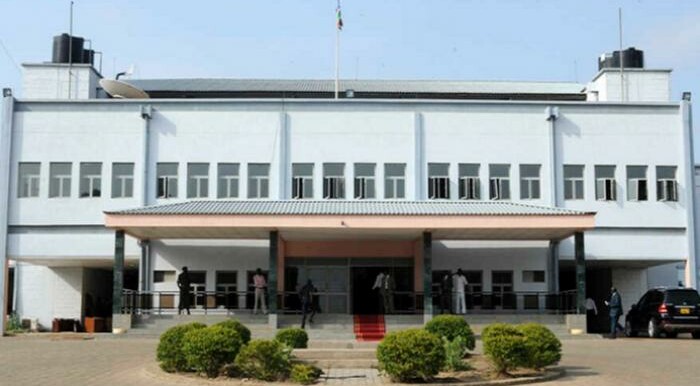South Sudan’s parliament passed a long-awaited National Youth Policy 2025 on Thursday, a move officials said aims to empower a majority young population grappling with high unemployment and the legacy of conflict.
The policy mandates that young people hold 20% of positions in national and state governments and pledges that 10% of the national budget will be allocated to youth projects. It defines youth as those aged between 15 and 35 years in a country where more than 70% of the population is under 30.
The legislation, first drafted in 2013, also overhauls the existing youth union, transforming it into a South Sudan National Youth Council to align with standards of the East African Community, to which the nation belongs.
Deng Tong, the Deputy Chairperson of the parliament’s Joint Committee for Legislation and Justice, Youth and Sports, hailed the policy as the culmination of “nearly two decades of reflection, consultation and extensive building.”
“It is designed to provide an integrated, holistic and coordinated legislative framework for youth development,” Tong said during an extraordinary parliamentary session. He described the policy as a “binding legal instrument with a clear mandate, accountability mechanism, and dedicated funding strength.”
The policy officially defines “youth” as citizens between the ages of 15 and 35. It also transforms the existing youth union into a more robust South Sudan National Youth Council, bringing it in line with standards set by the East African Community, to which South Sudan belongs.
Tong stated that the policy aligns with the country’s transitional constitution and the African Youth Charter. He said it aims to create “a brighter future, where South Sudanese youth can reach their full potential free from discrimination, conflict, and disease.”
He outlined the policy’s key objectives, which include empowering youth to contribute to peace and security; developing knowledge, technical and vocational skills, and entrepreneurship; educating on health issues, including sexual and reproductive health and substance abuse; and promoting gender equality in all walks of life.
During the debate, lawmaker Grace Abalang commended the policy’s provision for a 10% budget allocation, arguing it would provide alternatives to crime and violence by offering vocational training and entrepreneurship knowledge.
“Without this policy, many of our youth have joined rebellion,” Abalang said, using local terms for militant groups.
The budget allocation faced some opposition, with several lawmakers seeking a reduction. However, Nyayang Johnson Lok Riek, a parliament member from Jonglei state, argued that the 10% was justified.
“I really wanted to support this recommendation about 10% allocated to youth because this 10% is nothing and should be given to our youth to implement their programs,” Nyayang said.
The policy was passed after lawmakers debated at length the age range, with some supporting a bracket of 15 to 35 and others preferring 18 to 45. Some lawmakers argued that the policy must align with the 2008 penal code, which defines an adult as anyone 18 years or older.
The national youth policy was reintroduced in 2024 by the former Minister of Youth and Sports, Joseph Geng Akech.
Following its passage with all recommendations and observations, Permina Awerial Aluong, the parliament’s second deputy speaker, commended members for dedicating their time to passing the long-delayed legislation.
The government now faces the challenge of implementing the policy and securing the promised funding in a nation struggling with economic instability and a fragile peace process.
Edmund Yakani, executive director of the Community Empowerment for Progress Organization (CEPO), praised parliament’s passage of the National Youth Policy, calling it a “milestone” that met key advocacy demands.
Yakani, a renowned civil society leader, said the focus must now shift to ensuring the policy is effectively implemented.
“We are proud. A campaign and advocacy and lobby around the youth policy have succeeded now,” he stated. “Our next step is now dissemination and the ownership of the policy by the youth and cross-examining genuine, effective, and timely implementation.”
Last week, a youth advocacy organization called on the government to urgently pass and implement long-stalled youth policies, arguing that inaction fuels growing frustration.
Florence Agiba, executive director of the youth-led group Markaz Al Salam, urged officials to move critical policies from “draft documents to implemented reality.”
“Drafting policies is important, but it is only the first step,” Agiba said at an event in Juba dubbed “Policy Unplugged.” “Unless these policies are enacted, resourced, and implemented, they remain merely words.”




